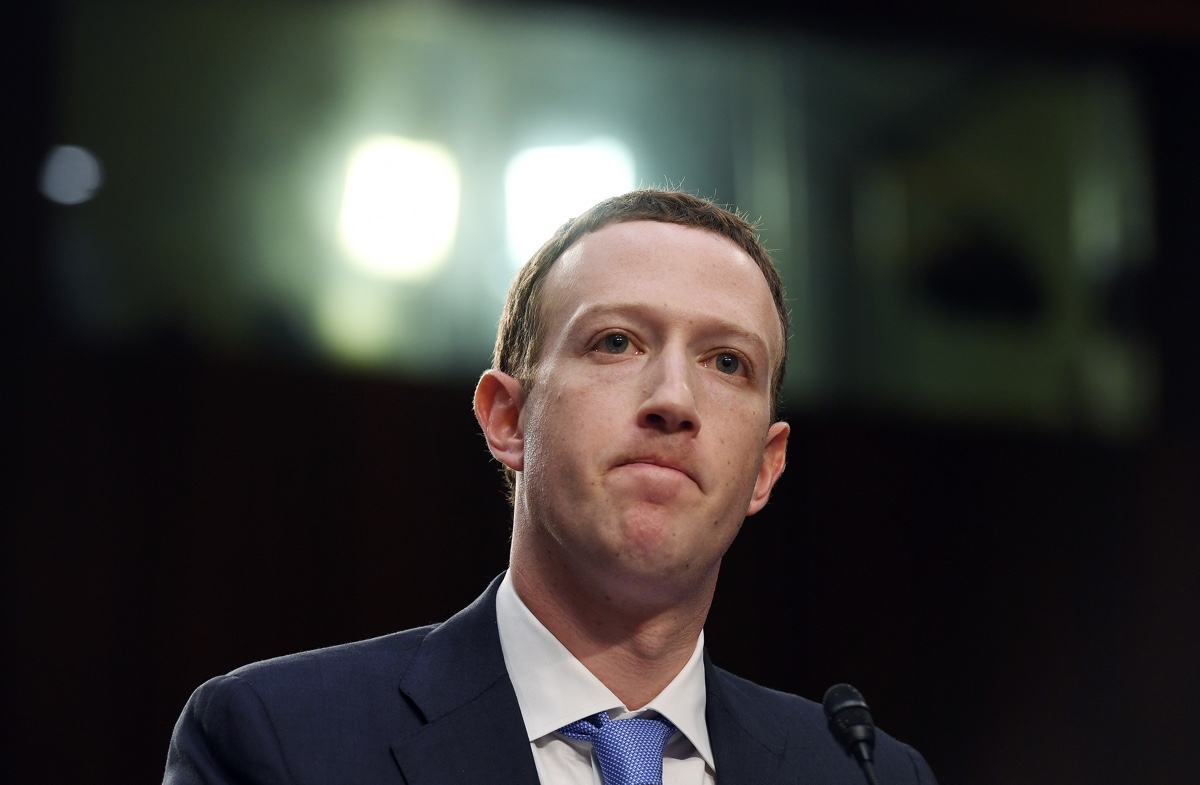
What 3 Facial Expressions from Zuckerberg's Congressional Testimony Mean

Facial expressions and body movements, whether we make them knowingly or not, can persuade people. As experts in political discourse and facial displays – how scientists often refer to facial expressions – we have analyzed Facebook CEO Mark Zuckerberg's five-hour Senate hearing on April 10. We looked at what kinds of questions senators asked and how Zuckerberg answered them.
What matters most in this kind of analysis is determining whether a person's facial expressions are appropriate for what is being stated and whether their muscular movements reliably reflect their intentions.
While an individual may be smiling, that expression doesn't always mean they are happy. They could be expressing sarcasm or politeness, depending on the context.
These facial clues can help viewers figure out whether a speaker – Zuckerberg in this case – is saying what he means. Zuckerberg was reserved but not impenetrable. His facial displays, while slight and subtle, were revealing.
Unenthusiastic frowning
Zuckerberg began his hearing with the senators by indicating he was not excited to be there.
Sen. Chuck Grassley opened the joint session by welcoming the CEO. During Grassley's statements, Zuckerberg pulled the corners of his lips downward, a muscular movement associated with an encounter with something unpleasant. Even without a verbal response, we can already see Zuckerberg's displeasure at sitting in front of the committee.
Amused smiling
Sen. Dan Sullivan, R-Alaska, complimented Zuckerberg by calling attention to his success, rhetorically asking if it could happen "only in America." When Zuckerberg tried to tell the senator that there are successful Chinese tech companies, Sullivan jokingly told Zuckerberg that he is "supposed to answer yes to this question."
Sign up for the Live Science daily newsletter now
Get the world’s most fascinating discoveries delivered straight to your inbox.
In response, Zuckerberg gave an amused smile and laughed. Sullivan and much of the joint committee and the audience laughed too.
When laughing, the corners of Zuckerberg's lips were pulled up and at an angle, the muscles around his eyes were contracted, and his jaw dropped.
The combination of these facial muscular movements show that a person is likely feeling amused. Between the jovial laughter shared between Zuckerberg and Sullivan, and Zuckerberg's seemingly happy facial expression, he appears glad to be laughing at a comment at his own expense rather than taking hard questioning.
Some of Zuckerberg's smiles were quite subtle throughout the hearing, but this smile indicated an exchange of humor.
Uncertain lip-pursing
Throughout the hearing, Zuckerberg is seen pursing and pulling his lips into his mouth, particularly when senators posed negatively framed questions.
Sen. Bill Nelson, a Democrat from Florida, asked about Zuckerberg's accountability to the 87 million people whose information was breached by Cambridge Analytica, the incident which led to Zuckerberg's appearance before Congress. The senator began with confrontational statements about Facebook's "pattern of lax data practices" and asked Zuckerberg why Facebook hadn't informed users about the breach when it happened.
Zuckerberg pushed his lower lip upward and both lips together. This suggests he was feeling vexed about Nelson's statement that "the recent scandal is frustrating not only because it affected 87 million, but because it seems to be part of a pattern of lax data practices by the company going back years." This indicated a degree of anger – either at the question, the breach or both.
Zuckerberg did not provide a complete reply to Nelson's question. By not completely answering the question, Zuckerberg's tells us he doesn't want to supply Nelson with a straightforward answer. Instead, he described the process Facebook went through to punish the developer who sold users' personal information to Cambridge Analytica.
This moment revealed how the question of accountability is still a touchy point for him.
Nichole Russell, M.A. Candidate in Political Science, University of Arkansas and Patrick A. Stewart, Associate Professor of Political Science, University of Arkansas
This article was originally published on The Conversation. Read the original article. Follow all of the Expert Voices issues and debates — and become part of the discussion — on Facebook, Twitter and Google +. The views expressed are those of the author and do not necessarily reflect the views of the publisher. This version of the article was originally published on Live Science.










